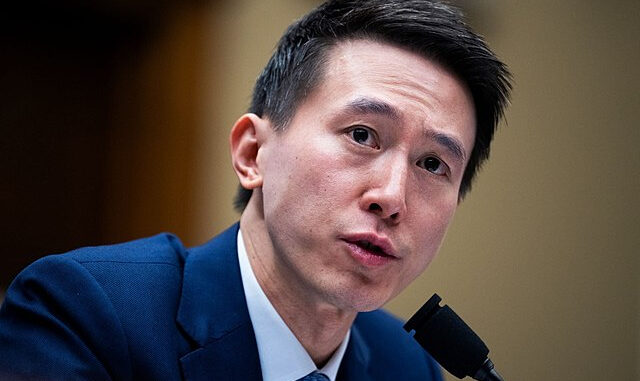
Maxwell Marcello | Staff Writer
Since as far back as anyone remembers, the heated debate over media evolution and its impact on society has persisted. Amidst the evolution from cable television to short-form videos on the phone, TikTok stands out for its unprecedented growth, attracting millions of American users.
Significantly, TikTok represents the first major social media platform of non-U.S. origin to accomplish this feat, with 150 million Americans alone who use their site. Given its extensive reach, particularly among users under the age of 30, concerns regarding the welfare of its younger audience are increasing.
This concern, coupled with the app’s potential use as a cyberweapon in the near future, has drawn significant attention from regulators and users alike, prompting other countries to take action against TikTok. It is time that the United States does the same.
The first and most pressing justification from U.S. leaders are concerns relating to national security. Based in Beijing, TikTok’s parent company, ByteDance, has a reputation for censorship and surveillance. The company, like all Chinese companies, is required to be in full compliance with the policies of the ruling Communist Party of China (CCP).
Although censorship is not as prevalent in markets outside China, the surveillance is. TikTok is arguably the most attractive and successful computer worm in history. Like other forms of malware, TikTok embeds itself into our phones and employs advanced user tracking.
TikTok records keystrokes, location and other data even when the user is not actively engaged on the app. All of this aggregated data inevitably ends up in Chinese ByteDance servers and is undoubtedly made available to the CCP.
This issue becomes particularly troubling in light of China’s dual justice system. There exists one legal framework managed by the Chinese state and another under the auspices of the CCP. While the party’s courts are ostensibly designated for internal political issues, the reality is that it would be relatively straightforward for Chinese President General Secretary Xi Jinping, as the CCP’s leader, to frame data compliance as a matter of political concern.
Given this potential for unlimited and unsupervised mass surveillance, many countries have forbidden the installation of TikTok on all government devices, including the United States. However, an outright ban has stalled in Washington as the issue is a surprisingly polarizing one.
During the Trump Administration, the Republican Party rallied around the president’s vocal support for an outright ban and succeeded in restricting and later banning its use on government devices.
Now Trump has changed his opinion, arguing that TikTok prevents Facebook and its parent company Meta from achieving social media hegemony.
It is important to note that while American companies are also guilty of these gross privacy violations, Americans themselves have the capacity to force elected leaders to enact data protection laws. After all, it is easier for Americans to change the corporate behavior and laws of the United States than it is for them to do in China.
Democrats are far less divided on the issue, arguing against the ban. Millennial politicians like Congresswomen Alexandria Ocasio-Cortez and our own Summer Lee have used the app in order to engage with young voters.
Generation Z and millennials make up the majority of TikTok’s user base and are a vital component in Democrats’ political victories. With election season fast approaching, it is clear to the Democratic political strategists that restricting TikTok will not bode well, especially after young voters have soured on Biden, primarily due to the administration’s policies concerning Gaza.
Despite the political dynamics, House Republicans have rebuked their now-christened presidential nominee by passing a bill that forces TikTok to either be sold to a non-Chinese entity or be banned in the United States. In spite of their defiance, it is unlikely to pass the Senate and President Biden is almost guaranteed to veto purely on his political interests.
Ignoring the potential of TikTok as a powerful tool for influencing political discourse would be a significant oversight for China. Gaining insights into American domestic politics opens up numerous opportunities for exploitation and potential misinformation campaigns in the foreseeable future. Although it’s challenging to predict the long-term political strategies China might employ with TikTok, the early warning signs are evident.
The second significant argument for imposing a ban on TikTok centers on the detrimental effects the platform has on its users and public health. With its rise to global prominence, a growing body of research has established a correlation between TikTok usage and diminished attention spans.
This trend can be attributed to two related factors: the nature of short-form content and the passive viewing experience engineered by TikTok. The platform utilizes state-of-the-art artificial intelligence to tailor a “For You” page, offering an endless stream of bite-sized videos.
The risks that this platform bring must be considered. Even if TikTok is not banned, this should prompt some degree of action. Whether it is artists going off to create a haven where content creation can be explored, establishing a platform that does justice to its creators, bravely independent of totalitarian regimes and taking serious consideration on its corporate-social impact or reforms to existing platforms. Regardless, TikTok remains a serious national security and public health threat that should not be ignored by citizens and governments alike.
